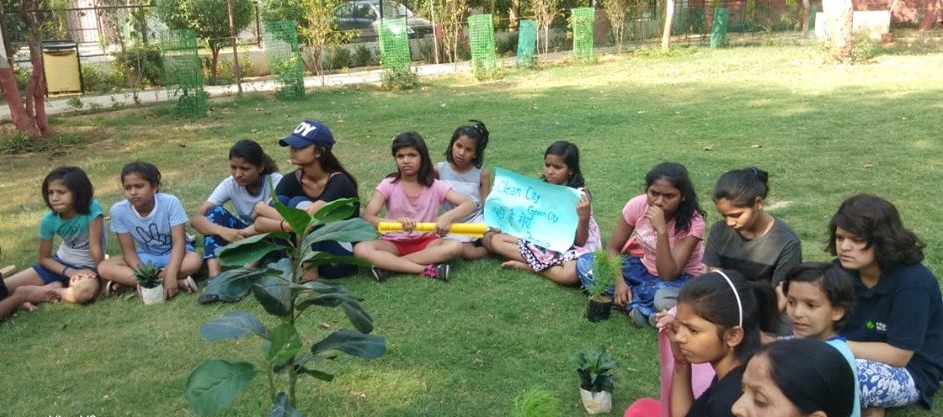
Adolescence can be a period of great emotional torment, not only for the child but also for the family. Confused due to various bodily changes, a child often experiments with the development of their personality before a coherent identity is formed. How children see the world is bound to be framed, primarily and directly, by what they experience at home. Sensitive care-giving can thus help form a safe internal and external world.
In its absence, however, a child can find his or herself grappling with fragile emotional health, more so when the child has to witness parental divorce.
Radhika* arrived at Salaam Baalak Trust in a similar state of vulnerability. Forced to take responsibility of her siblings at 13, she found herself clueless about her father’s sudden abandonment. Vacant eyes, dishevelled appearance and muted responses to the counsellor were enough to indicate that something was amiss. For the first three weeks, her interaction was limited to another girl who was two years’ her senior. She would pick leaves from plants, chew the skin on her fingers and avoid conversations. In the NFE (Non-Formal Education) classes, she would often be found lost and oblivious to the teacher. Indifferent to the contents on TV, Radhika would often be found blankly staring at the screen; even the study table where she sat had violent graving from geometry instruments.
In the second month, the breakthrough happened when Radhika was given the task to distribute lunch. This was the first time she responded to the social worker without resistance. The act of giving nutrition had created a thaw in her otherwise impervious demeanour. She was praised and encouraged by the coordinator of the shelter home. With time, she began to revel in the various duties of the centre, often taking initiative to clean the environment. Gradually she was found combing hair of girls who were junior to her and watering plants she had earlier picked leaves from. These activities went in tandem with the clinical work of the counsellor, in consultation with the psychiatrist. With attention to small but significant milestones, she finally began to confide in the counsellor. From monosyllabic utterance to casual gossip and complains, the clouds of diagnosed depression were lifting. The medicines helped enable the psychotherapeutic process to take deeper effect.
Four months in, Radhika started to actively participate in quizzes, group sessions and classes. Her nurturing personality won her many friends who would seek her out all day long. “Radhika Didi” finally and firmly established herself as an indispensable part of the community, leading by example and healing those in need.
The sessions revealed that her mother lived in a hostel in the city with other two children and worked as a housemaid. Radhika was admitted by her mother in the hope for a better life and with full belief in Radhika’s resilience. During family counselling sessions, the collective trauma of the family was unpacked and sensitively processed. Growing from strength to strength, Radhika gained admission in a regular school and went on to score 75 percent in her 12th grade. She also went on to pursue her graduation through the Vahani scholarship at IP University and won a Gandhi Fellowship where she would get paid to teach underprivileged kids. Parallelly, Radhika has gained admission in the prestigious TISS (Tata Institute of Social Sciences) to pursue a Master’s program in Social Work, with a focus on Dalit and Tribal Studies.
Radhika now has to choose between the prospect of teaching or studying a Master’s program. Thus, from a child whose life hit rock bottom, Radhika is now spoilt for choice between two meaningful career prospects.
The choice, as always, remains hers. As for the kids at the centre, “Radhika Didi” would continue to inspire the community of street children for years to come.”
*name changed to protect the child’s identity